Even though the S&P 500 has moved decisively higher over the past week, sentiment has entirely shrugged off price action.
The percentage of respondents reporting as bullish to the AAII’s weekly sentiment survey dropped back below 25% versus a reading of 29.3% last week.
Bullish sentiment has now dropped for three straight weeks, having fallen 15.7 percentage points in that span for the largest three-week decline since August 24th. That has also resulted in the lowest bullish sentiment reading since May 18th.
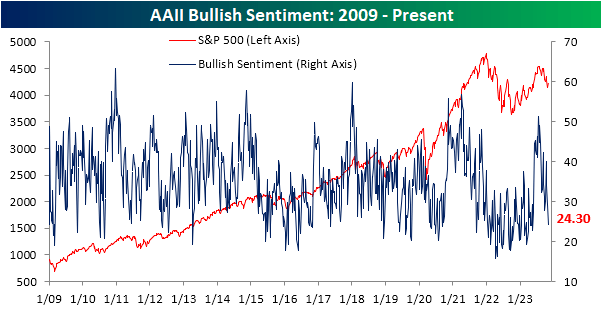
That was matched with a rise in bearish sentiment back above 50%. That was the first time a majority of respondents reported as bearish since last December.
As shown in the second chart below, the 44 consecutive weeks without such a reading is sizeable, but far from any sort of record.
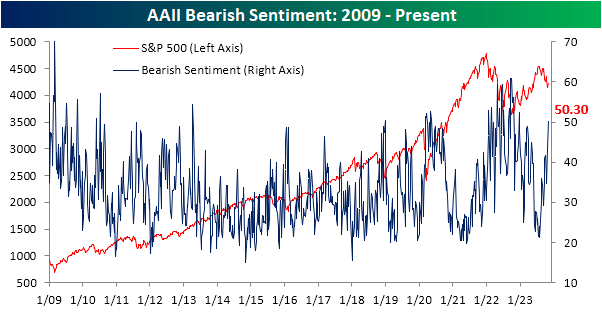
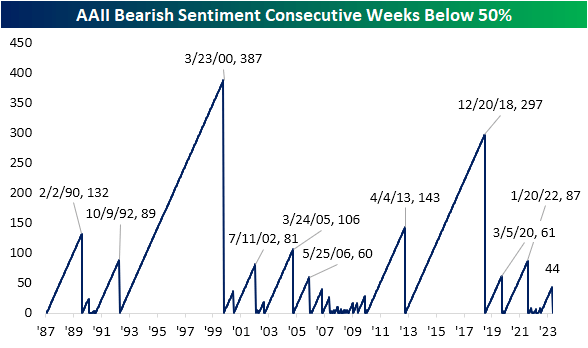
With new near-term lows in bulls and highs in bears, the spread between the two widened to 26 points in favor of bears. That is the most negative bull-bear spread reading since March
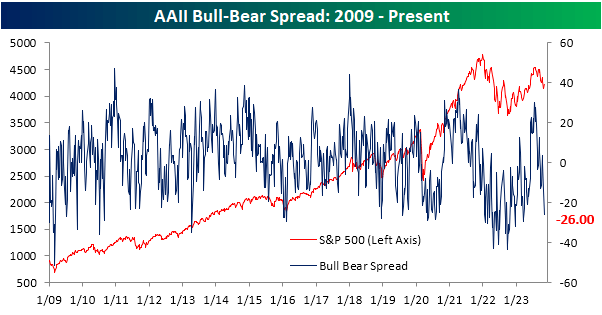
Other sentiment surveys echoed that negative tone among investors. The NAAIM Exposure Index was actually slightly higher week over week, although it continues to show low levels of long equity exposure.
Meanwhile, like the AAII Bull-Bear spread, the Investors Intelligence survey also indicated the most bearish reading since March. Put together, our sentiment composite is now back below -1.
That means the average sentiment reading is a full standard deviation more bearish than its historical average for the weakest reading since the first week of the year.
Although current readings are rather pessimistic, due to the timing of data collection, the results would not have captured any response in sentiment following the FOMC on Wednesday.
In other words, next week, we will get a read if the latest updates on monetary policy had any effect on investor pessimism.
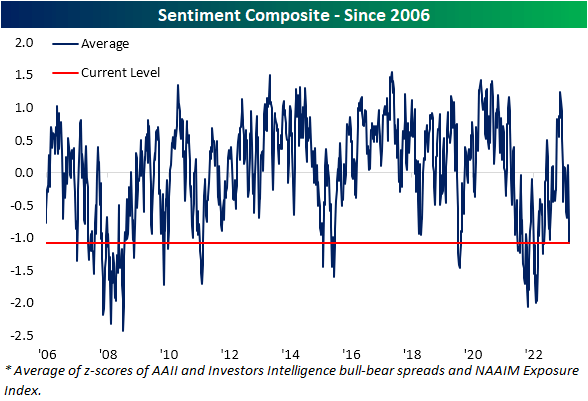
Original Post
Editor’s Note: The summary bullets for this article were chosen by Seeking Alpha editors.
Read the full article here





